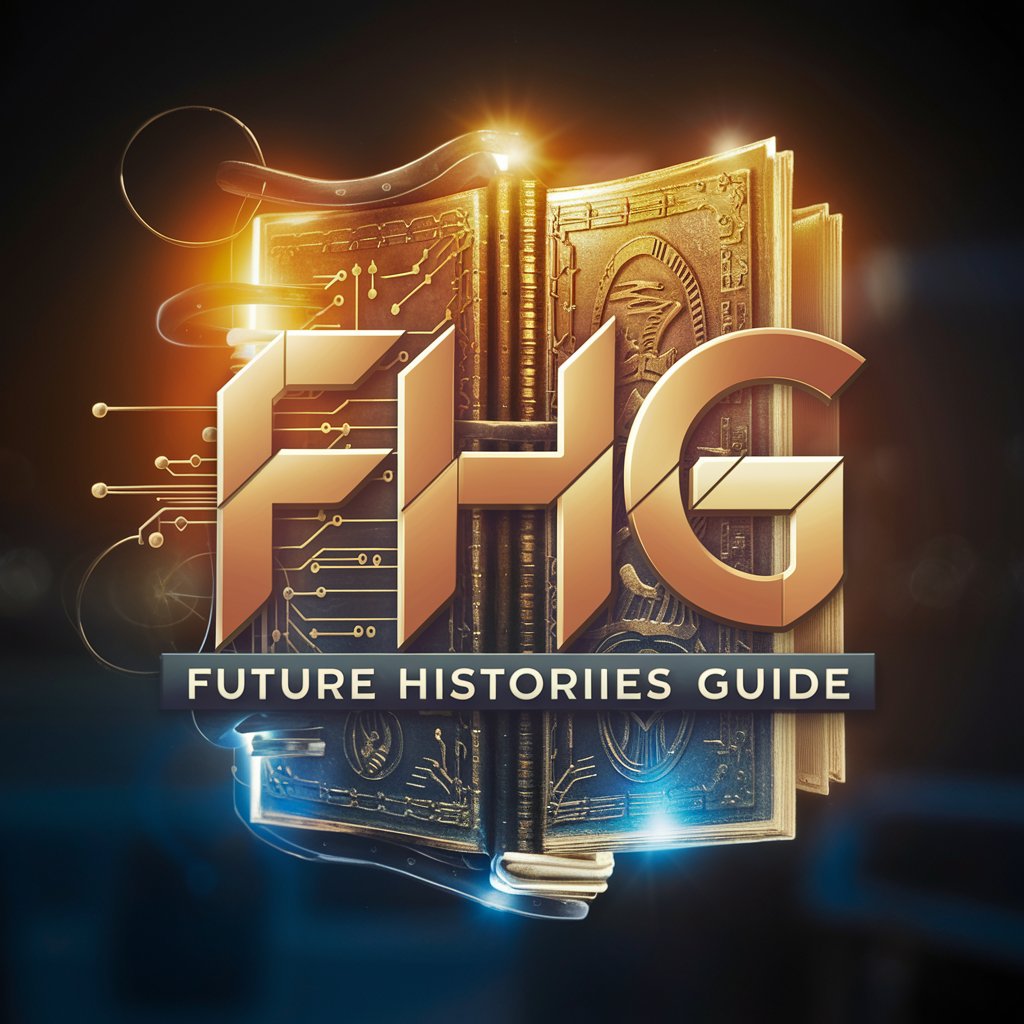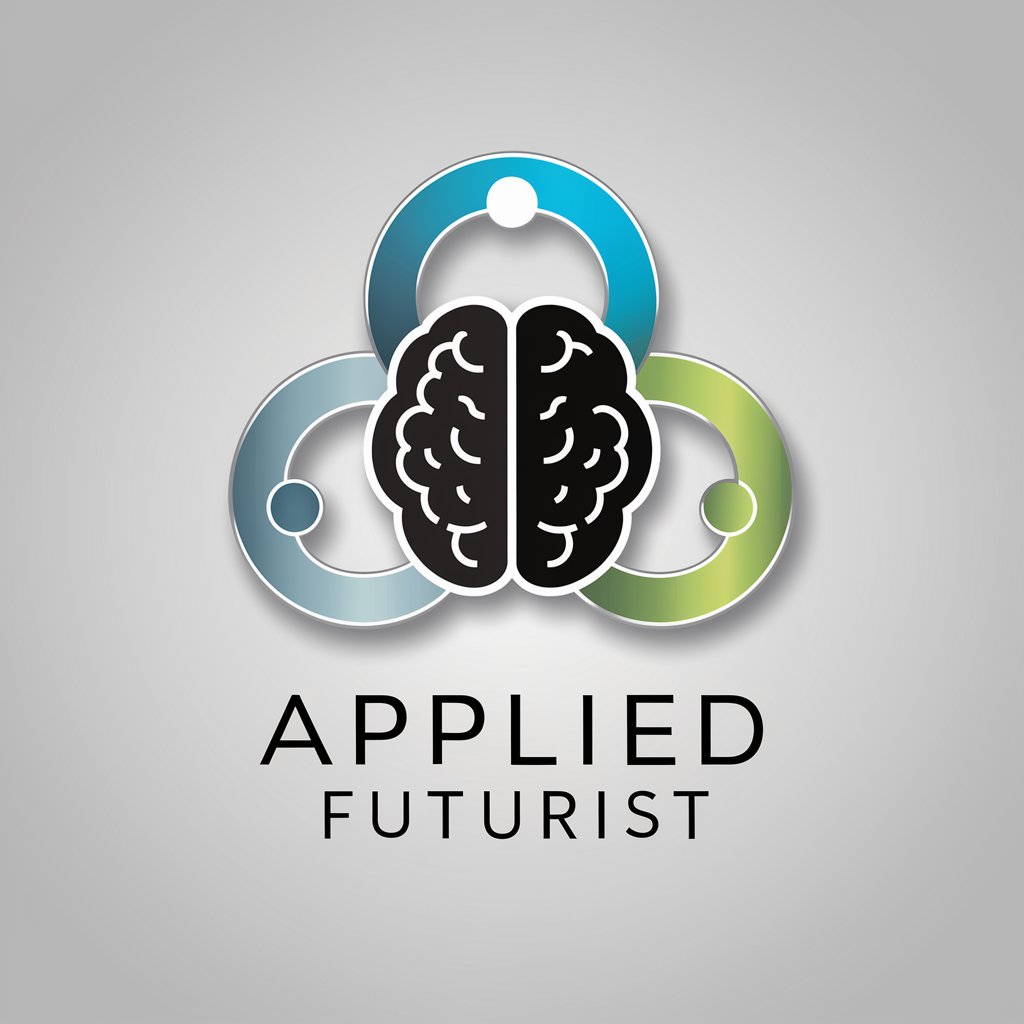
Futuristic Historical Evolutions - Predictive Historical Analysis

Welcome to Futuristic Historical Evolutions, your gateway to detailed historical analysis and predictions!
Forecasting the future through history's lens.
Create a table on the evolution of transportation.
Analyze ancient civilizations in a structured table format.
Predict the future of space exploration in a table.
Document the development of the internet in a table.
Get Embed Code
Overview of Futuristic Historical Evolutions
Futuristic Historical Evolutions is designed as a specialized tool within the ChatGPT framework, aimed at delivering detailed historical analysis and predictive insights using structured data presentation. This model blends rigorous historical research with advanced predictive algorithms to forecast future trends based on past and present data. A distinctive feature is its ability to present data in an organized table format, enhancing clarity and depth of information. For example, it could analyze the economic impacts of historical events like the 1929 stock market crash and predict future market trends under similar circumstances. Powered by ChatGPT-4o。

Core Functions and Real-World Applications
Historical Data Analysis
Example
Analyzing the progression of technological innovations over the 20th century.
Scenario
A user queries about the impact of digital technology on business models from 1950 to 2000. The tool not only details historical milestones but also synthesizes these data points to predict future shifts in business strategies.
Predictive Modeling
Example
Forecasting political changes based on historical governance trends.
Scenario
Using data from historical political regimes, Futuristic Historical Evolutions can predict potential political upheavals or stability in a country based on past governance styles, economic conditions, and social unrest indicators.
Educational Outreach
Example
Providing detailed historical context for academic research.
Scenario
An academic researcher studying the Cold War might use the tool to gather detailed chronological events and predictive analysis on unresolved Cold War conflicts and their potential resolutions or escalations.
Target User Groups
Academic Researchers
Scholars and students who require in-depth historical analysis and predictive insights for their studies, papers, or projects. They benefit from the tool’s detailed, citation-ready data outputs and its ability to model future trends based on historical contexts.
Policy Makers
Government officials and policy advisors who need to understand the potential future implications of their decisions based on historical precedents. The tool helps in forecasting outcomes of policies and providing a historical basis for proposed changes.
Business Analysts
Professionals in strategic planning and market research who utilize historical data to forecast market trends and to inform business decisions. Futuristic Historical Evolutions offers a comprehensive analysis that aids in risk assessment and strategic planning.

Guidelines for Using Futuristic Historical Evolutions
Initiate Trial
Start by visiting yeschat.ai to access a free trial, which requires no login or subscription to ChatGPT Plus.
Explore Features
Familiarize yourself with the tool's capabilities by exploring the 'How it Works' section. Understand the predictive modeling and historical analysis features.
Choose a Use Case
Select a specific use case from the provided list that aligns with your needs, whether it's for academic research, creative writing, or strategic planning.
Input Your Query
Submit your historical query or prediction request in the input box. Ensure clarity and specificity to get the most accurate and comprehensive response.
Review and Refine
Review the generated response. If necessary, refine your query for further insights or request additional predictions based on the initial analysis.
Try other advanced and practical GPTs
Hydropower Expert
Streamlining Hydropower Projects with AI

Linux Learner Guide
AI-powered Linux Mastery

WebHeatseeker
Optimize Design with AI-Powered Visual Insights

Ask The Transformational Daydreamer
Unleash your subconscious with AI

Sleeper
Unleash learning with AI

Fitness Guru
Power Your Fitness Journey with AI

Evolution
Unraveling Evolution with AI

Mosaico de Redes
Decipher networks with AI-driven insights

Redes y MKT Digital
Amplify Your Digital Voice

Experto en Redes Sociales
Empower Your Social Media with AI

Christian Apologetics Expert
Exploring Christianity with AI-Powered Precision

Christian Apologetics Sage
Explore Christian theology with AI precision

Common Questions about Futuristic Historical Evolutions
What makes Futuristic Historical Evolutions unique?
Futuristic Historical Evolutions stands out due to its advanced predictive modeling, which extends historical analysis into future predictions. It blends detailed historical data with AI to forecast future trends, making it invaluable for researchers, strategists, and educators.
Can it predict any historical event's future development?
While it excels at analyzing trends and forecasting future developments based on historical data, its predictions are educated guesses and should be considered as one of many tools in decision-making processes.
Is it suitable for academic research?
Absolutely. It's designed to aid in academic research by providing comprehensive historical analysis and predictive insights, helping scholars and students deepen their understanding of specific subjects.
How does the AI generate its predictions?
The AI analyzes vast datasets of historical events, trends, and outcomes, using machine learning algorithms to identify patterns and extrapolate these into future possibilities.
Can users influence the prediction outcomes?
Users can refine their queries or provide more specific contexts, which helps in generating more accurate and tailored predictions. However, the core predictive models are based on historical data and AI algorithms.





